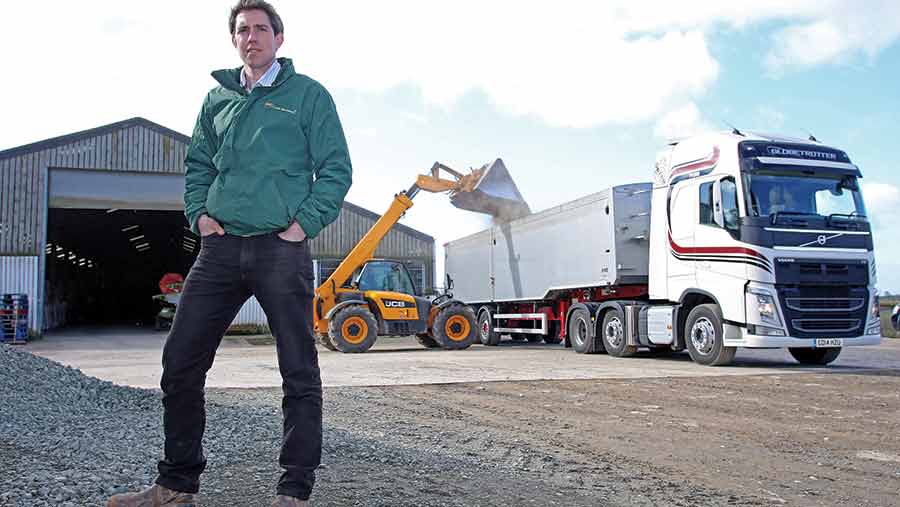Farmer Focus: Herefordshire harvest frustrated by rain
 © Richard Stanton
© Richard Stanton It’s hard not to start without a comment about the weather, but it has been immensely frustrating.
From the day after we started harvest on 18 July, two weeks earlier than normal, the rain showers have been relentless and we have barely strung two good combining days together.
However, every harvest since I have been at Lower Hope has had a period of three to five weeks in it where we barely turn a wheel, so I am hoping once this unsettled period passes we will be in for a prolonged settled spell.
Hopefully, this will coincide with September which is always our busiest month and a good autumn always sets this farm up well.
See also: Read more from our Arable Farmer Focus writers
So far we are just over 50% of the way through harvest with the bulk of the wheat still cut as well as peas and spring oats.
The oilseed rape and winter barley harvest was a long drawn out affair and all though yields were acceptable – the OSR hit 4t/ha and winter barley got 7t/ha.
Our Marris Otter malting barley has once again not made the malting spec with the nitrogen and the retention letting us down.
This will be the last year we grow the variety as it is not suiting the farm unfortunately and as there is a high demand locally for feed barley this seems the most sensible option.
Rapeseed and cover crop drilling is yet to get under way as every dry day at present is taken up by getting the ground clear. In addition to this, we are also waiting for our new drill to arrive to be able to get on with these tasks.
I have been careful to choose an OSR variety this year with a bit more standing power – we’ve cut a lot of flat rape this year.
The changes to the Ecological Focus Area rules, particularly the ban on the use of pesticides on nitrogen-fixing crops, is causing a few reconsiderations for the final 2018 cropping plan.
However, it may improve the price on peas and beans as the supply will surely be reduced as growers decide not to grow these crops.
Jack Hopkins is the assistant farm manager on a 730ha estate in north Herefordshire on predominantly silty clay loam soils. Cropping includes wheat, barley, oilseed rape, spring oats and peas, plus grassland supporting a flock of 1,000 ewes and 25 pedigree Hereford cattle.

